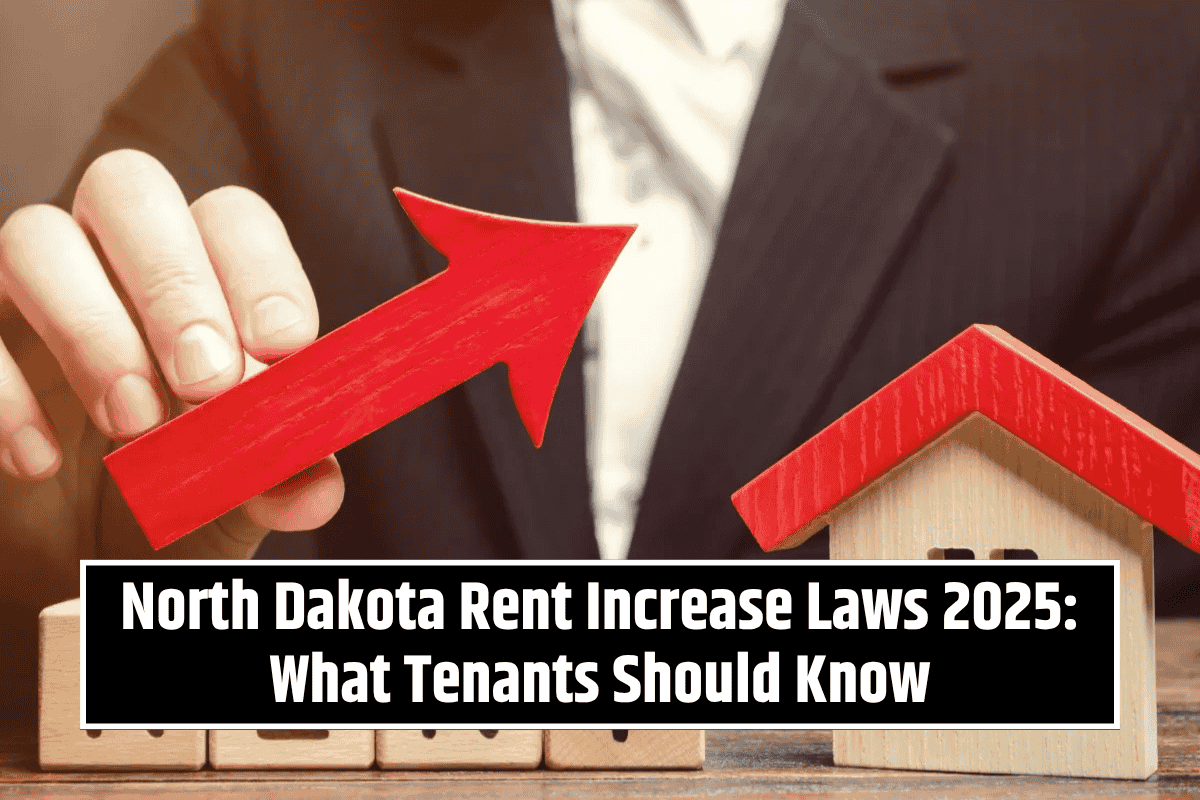Rent increases are a common concern for tenants across the United States, and North Dakota is no exception. In 2025, tenants need to be aware of the rules and laws that govern how much rent can be raised, when it can be increased, and the protections available to renters.
Whether you’re renting an apartment, a house, or another type of property, understanding your rights can help you avoid surprises and ensure that any rent hike is fair and legal.
Understanding Rent Increase Laws in North Dakota
Unlike some states, North Dakota does not have statewide rent control laws. This means that landlords have the ability to raise rent at their discretion, but there are rules they must follow. The specifics of when and how a landlord can increase rent depend largely on the lease agreement and the length of the lease.
Key Points About Rent Increases in North Dakota
In North Dakota, there are a few important points tenants should know when it comes to rent increases:
- Notice Requirements: Landlords must provide written notice of any rent increase. The notice should include the new rent amount and the date the increase will take effect. The law requires that the notice be given at least 30 days before the increase takes effect for month-to-month leases. For longer-term leases, the rules may vary depending on the terms set within the lease.
- Lease Agreements: If you have a fixed-term lease, the rent amount is usually set for the duration of that lease. However, once your lease ends and it turns into a month-to-month agreement, the landlord can raise rent, as long as they provide proper notice. If your lease is up for renewal, the landlord might propose a rent increase at that time.
- No Rent Control: North Dakota does not have rent control laws. This means there is no legal limit on how much rent can be raised, as long as the landlord follows the proper notice procedures. Rent increases are generally based on the landlord’s discretion, the condition of the rental property, and market rates in the area.
- Eviction for Non-payment: If the rent increase causes a tenant to be unable to pay, and they fall behind on rent, the landlord has the right to evict the tenant for non-payment. However, they must follow the proper legal procedures for eviction, which include providing notice and filing in court.
- Unfair Rent Increases: While there are no specific caps on rent increases in North Dakota, any increase that is done unfairly or in retaliation against the tenant is illegal. For instance, if a landlord tries to raise the rent significantly in response to a tenant complaining about repairs or filing a complaint with local authorities, this could be considered retaliation.
How to Prepare for a Rent Increase
Being prepared for a rent increase can help you avoid unexpected financial pressure. Here are a few tips on how tenants can handle the situation:
- Review Your Lease: Before worrying about any potential increase, check your current lease agreement to see if it includes any terms about rent hikes. Some leases specify how much and when rent can increase.
- Negotiate: If your lease is up for renewal and the landlord proposes a rent increase, you can try negotiating. In some cases, landlords may be open to keeping rent the same or only increasing it by a smaller amount if the tenant is reliable and takes care of the property.
- Understand Market Trends: Stay informed about local rental prices. If rent is going up in your area, your landlord may follow suit. However, if the increase seems excessive compared to similar properties, you may want to look for alternatives or ask the landlord to justify the increase.
- Consider Your Options: If the new rent is unaffordable or significantly higher than expected, you may need to consider your options. You could look for another rental property, discuss the increase with the landlord, or in extreme cases, consult legal help.
What Tenants Can Do if They Believe Rent Increases Are Unfair
If you believe that the rent increase is unfair or illegal, there are a few steps you can take:
- Check the Terms of Your Lease: Make sure that the landlord is following the rules outlined in your lease agreement. If the increase violates the terms, you may have a legal claim.
- Seek Legal Advice: If the rent increase seems unusually high or you suspect it is being applied unfairly (for reasons such as retaliation), it’s a good idea to consult with a lawyer who specializes in landlord-tenant law.
- File a Complaint: In some cases, if you suspect that your landlord is not following the rules, you can file a complaint with local housing authorities or consumer protection agencies.
While North Dakota doesn’t have rent control, tenants still have rights and protections regarding rent increases. Landlords must provide proper notice, and the terms of your lease agreement will play a significant role in determining how rent can be increased.
By understanding the rules and being proactive, tenants can better navigate rent increases and ensure their living situation remains stable. If you feel a rent increase is unfair, it’s important to seek legal advice and explore your options.
